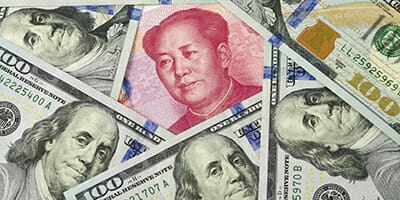Regulatory proposals announced in April mean that in October foreign investors will be able to buy the top shares listed on the Chinese mainland stock exchange within annual quota limits. The momentum of market liberalisation is such that MSCI is considering using such A shares in its emerging market indices, a move that will take Chinese shares from an 18 per cent share of the index up to 30 per cent.
But to be able to purchase shares today and to be able to access smaller shares – those who might grow into tomorrow’s Alibabas or Taoboas – funds will need a QFII, an acronym commonly pronounced as “kewfie”.
Most holders of the 261 Qualified Foreign Institutional Investor licenses issued by the Chinese Securities Regulatory Commission so far are investment banks, but currently 18 insurance companies, 12 pension funds and nine sovereign wealth funds hold licenses.
Those institutional investors with the largest quotas (US$1.5 billion) are the Government of Singapore Investment, Temasek, Norges Bank, Kuwait Investment Authority. The Abu Dhabi Investment Authority has a quota of US$1 billion, the Canada Pension Plan Investment Board US$600 million, Caisse de Depot et Placement du Quebec US$500 million, National Pension Service US$400 million, Ontario Teachers Pension Plan Board US$300 million and Andra AP-fonden $200 million. One motivation for Kuwaiti and Singapore investors on this list, is that their countries have negotiated capital gains tax exemptions for investors, which means they do not pay the 10 per cent of profits other investors pay.
Such foreign owners of mainland listed shares in China currently represent only 1.35 per cent of the entire market, a limit set by the Chinese government, but one that most believe will increase as the authorities become more comfortable with foreign investors.
Credentials checked
All QFII license holders go through the process of having their credentials checked. All will have hired a locally situated custodian such as HSBC or the Bank of China to submit their application and all will have hired a local broker and most peculiarly all will have filled out a form stating their investment view of the Chinese market.
Charles Salvador, director of international solutions at the Shanghai based Z-Ben Advisors, advises international investors on the process of getting QFIIs, and he has has seen a dramatic rise in the number of licenses handed out since 2010, with the largest appetite for investing coming from sovereign wealth funds.
To Salvador, the hardest part of gaining a license comes from co-ordinating all of an investor’s service providers around a deadline from the very start of the process. He estimates a preparation time of 3-5 weeks and a one month wait for the application to be processed.
One of the few ways a fund could be denied a license, is if it declares that it has a short-term view of its involvement in the Chinese stock market or that it intends to carry out shorting activity – hedge fund managers have been kept out for this reason.
Key to business
In Chinese society long term relationships are key to business, so the encouragement of long term investment is understandable. While the nature of central planning makes the fear of volatility caused by short selling understandable too.
“You should word it in a way that shows you are a long-term investor,” advises Salvador. Investors’ investment activity is expected to match the view of the market in their application and it will be monitored as such.
One teething problem for QFII holders is the T plus 1 rule, which means the owner of a license cannot buy and sell the same security on the same day. For those using several fund managers, it means if manager A wants to buy a stock and manager B wants to sell it on the same day, only the manager that goes first will be allowed to execute.
Salvador says: “We are lobbying [the Chinese government] to put this on a mandate level, so it only applies to one manager.”
Other restrictions are that equities must form 50 per cent of investments, with preferred shares, bonds, warrants, IPO being the other alternatives.
There are also restrictions designed, it would appear, to keep investors money inside China. Those who have a QFII license must keep as least US$50 million invested and revenue from sales can only be repatriated on a monthly basis and only once tax has been settled. There is also a 20 per cent limit on a QFII holder’s quota being repatriated in any month, no more than 20 per cent of the quota can be kept in local currency too.



